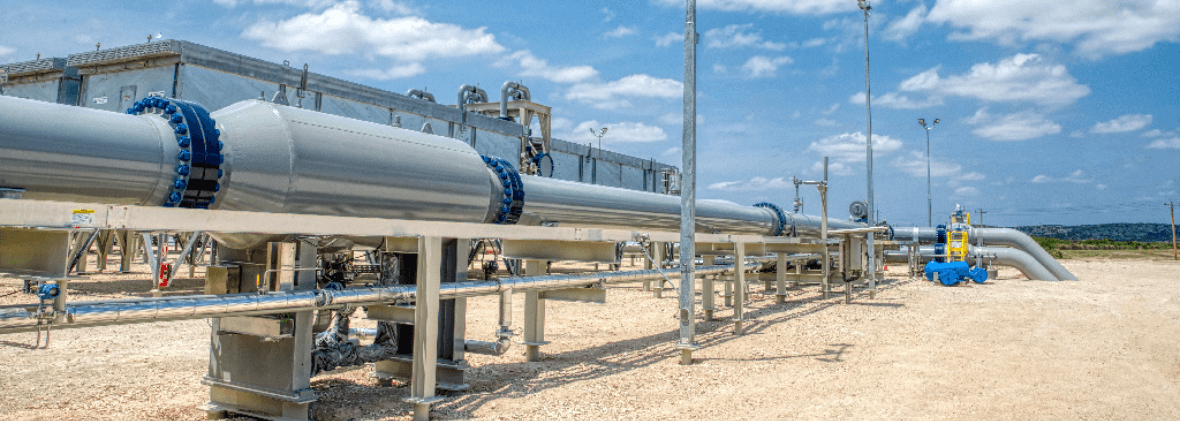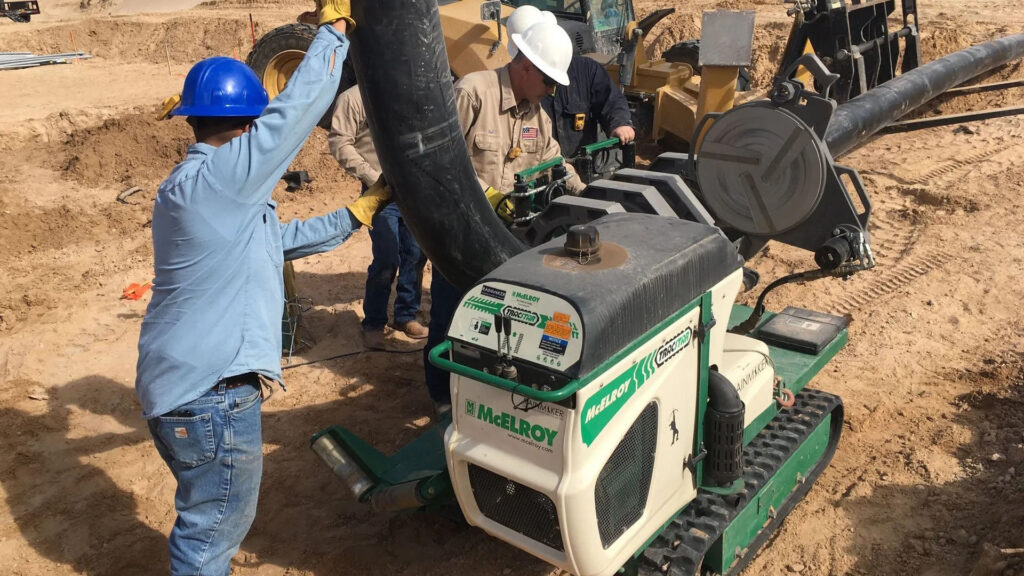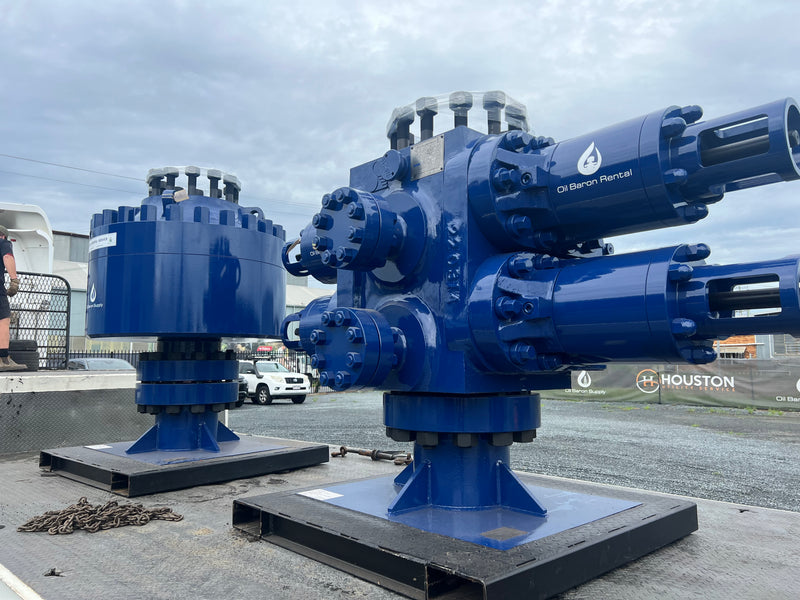Superior Oilfield Rentals oilfield: why it matters
Wiki Article
A Comprehensive Overview to the Different Kinds of Oil Field Equipment and Pipeline Equipment Available
The oil and gas market relies heavily on specific devices for efficient removal and transport. Different types of equipment, from drilling rigs to tank, play important roles in this intricate process. Each tool offers distinctive features that add to overall operational success. Understanding these components is important for any individual entailed in the market. As the sector develops, so too do the modern technologies that sustain it. What improvements are on the perspective?
Drilling Rigs: The Backbone of Oil Expedition
Drilling rigs work as the vital machinery in the domain of oil exploration, enabling companies to gain access to hydrocarbon reserves buried deep underneath the Planet's surface. These rigs are available in numerous types, including land rigs, offshore rigs, and mobile devices, each made to operate in specific atmospheres. Furnished with innovative technology, piercing rigs can pass through geological formations with accuracy, ensuring efficient source removal. The structural integrity and functional abilities of these rigs are essential, as they need to withstand extreme conditions and substantial stress. The option of a drilling gear impacts the general job expense and timeline, making it a crucial consideration for oil firms seeking to optimize their expedition efforts and maximize productivity in their procedures.Pumps: Vital for Liquid Movement
In the oil extraction process, the duty of pumps is considerable, facilitating the movement of liquids throughout numerous stages of manufacturing. Pumps are necessary for transporting petroleum, water, and various other fluids from below ground tanks to the surface and after that through pipelines to refineries. They can be found in numerous types, consisting of centrifugal, positive variation, and submersible pumps, each serving details purposes based upon the liquid qualities and functional needs. Centrifugal pumps are typically used for their effectiveness in high-flow applications, while positive displacement pumps master handling thick fluids. The selection of pump impacts overall performance, operational safety and security, and maintenance expenses. Proper option and upkeep of pumps are crucial for enhancing manufacturing and reducing downtime in oil field procedures.Shutoffs: Controlling Flow and Pressure

Shutoffs play an essential role in managing the flow and pressure of liquids within oil areas and pipes. Numerous types of shutoffs serve unique applications, each made to satisfy particular functions fundamental for reliable procedure - Superior Oilfield Rentals. Recognizing the attributes and usages of these valves is necessary for optimizing system performance and security
Kinds of Valves
Essential elements in oil field procedures, shutoffs play an essential role in controlling the flow and pressure of liquids within pipes and equipment. Various kinds of shutoffs are used to meet the diverse demands of oil and gas manufacturing. Typical kinds include gateway valves, which give a straight-line circulation and very little stress decrease; globe shutoffs, known for their throttling capacities; and ball valves, acknowledged for their quick on/off control. Additionally, check valves prevent heartburn, while butterfly valves use a lightweight remedy for controling circulation. Each valve kind is developed with details products and configurations to endure the harsh conditions usually located in oil areas, making sure integrity and efficiency in procedures. Comprehending these kinds is crucial for efficient system monitoring.Valve Applications and Features
While numerous kinds of valves offer distinct objectives, their main applications rotate around managing circulation and pressure within oil and gas systems. Valves such as entrance, world, and round valves regulate fluid motion, making certain peak performance and safety. Gateway valves are generally used for on/off control, offering minimal circulation resistance. World valves, on the other hand, deal precise flow guideline, making them ideal for throttling applications. Round shutoffs are favored for their quick operation and limited securing capabilities. On top of that, stress alleviation shutoffs are critical for stopping system overpressure, safeguarding tools stability. On the whole, the appropriate option and application of valves enhance operational performance, making sure the reputable transport of oil and gas through pipelines and handling facilities.Compressors: Enhancing Gas Transport
Compressors play an important role in the efficient transportation of gas, making certain that it relocates efficiently with pipelines over lengthy distances. These devices raise the stress of gas, permitting it to get over friction and altitude look these up changes within the pipeline system. Furthermore, compressors help with the balancing of supply and demand, fitting variations in consumption and manufacturing rates. Different kinds of compressors are utilized in the industry, including centrifugal, reciprocating, and rotating screw compressors, each offering distinct advantages based upon the operational needs. Routine maintenance of these compressors is important to make the most of effectiveness and lessen downtime, eventually adding to a trustworthy gas transport network. Their important feature highlights the importance of compressors in the total oil and gas infrastructure.Storage Tanks: Safe and Reliable Liquid Management
Efficient transportation of gas relies upon different sustaining systems, one of which is the correct management of storage tanks. These storage tanks play a vital duty in securely including fluids, ensuring that operational effectiveness is maintained while decreasing ecological dangers. Constructed from resilient products, they are developed to hold up against high pressures and destructive components. Appropriately sized and purposefully situated, storage space tanks facilitate the smooth flow of gas and other fluids, stopping bottlenecks in supply chains. Normal maintenance and tracking are necessary to discover leakages or structural problems, advertising safety and security and conformity with click now governing requirements. Inevitably, the efficient monitoring of tank is vital for the overall integrity and reliability of the oil and gas sector's fluid handling systems.
Pipeline Equipments: Facilities for Transport
Pipeline systems work as the backbone of the oil and gas sector, helping with the reliable transport of hydrocarbons over substantial ranges. These systems are composed of different components, consisting of pipelines, valves, pumps, and compressors, all carefully designed to guarantee seamless flow. The materials utilized in pipeline construction, usually steel or high-density polyethylene, are picked for resilience and resistance to deterioration. Pipeline networks can cover throughout land and water, connecting manufacturing sites to refineries and distribution centers. Furthermore, progressed innovation enables real-time tracking of circulation rates and pressure degrees, boosting functional effectiveness. The tactical placement of these pipes reduces environmental impact while making best use of source access, thereby playing a vital function in meeting power needs internationally.Safety Equipment: Making Sure Worker and Environmental Protection
The operation of pipeline systems, while essential for power transport, additionally provides considerable safety challenges for workers and the atmosphere. Security tools plays a substantial duty in reducing these threats. Individual protective equipment (PPE) such as safety helmets, handwear covers, and non-slip footwear safeguards workers from physical hazards. Furthermore, gas discovery systems check for leaks, making sure that harmful compounds do not posture a risk to workers or the bordering ecological community. Emergency situation closure systems are important for promptly halting procedures throughout a situation, avoiding potential disasters. Spill containment materials, including absorbents and obstacles, are essential for mobile concrete batching plant minimizing environmental impact. On the whole, investing in all-encompassing security devices is essential for keeping functional stability and safeguarding both workers and the environment in the oil and gas industry.
Often Asked Inquiries
How Do I Select the Right Oil Field Equipment for My Task?
Selecting the right oil field devices entails evaluating task requirements, budget restrictions, and functional demands. Take into consideration variables such as devices dependability, compatibility with existing systems, and the vendor's credibility to guarantee peak performance and security.What Are the Upkeep Needs for Oil Field Equipment?
Maintenance requirements for oil area equipment consist of routine assessments, lubrication, and prompt repair services. Operators needs to likewise abide by supplier standards, monitor performance metrics, and warranty conformity with safety regulations to enhance long life and efficiency.
Exactly How Can I Make Certain Compliance With Environmental Regulations?
To assure compliance with environmental guidelines, business need to carry out regular audits, execute best techniques, purchase training, preserve correct paperwork, and remain upgraded on regulation (Superior Rentals near me). Partnership with environmental agencies can likewise enhance adherence to regulationsWhat Is the Average Life-span of Pipeline Equipment?
The average lifespan of pipeline devices typically ranges from 20 to 50 years, relying on elements such as material top quality, environmental conditions, and upkeep practices. Normal assessments can greatly influence durability and functional efficiency.How Do I Safely Deliver Oil Field Equipment to Remote Locations?
Transporting oil area tools to remote areas requires cautious planning, including path assessment, safeguarding licenses, utilizing suitable lorries, and ensuring security protocols are followed. Correct training and interaction among teams are important for successful transportation.Report this wiki page